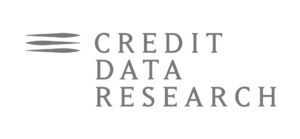

The importance of credit ratings for the banks and the effects on firms
CREDIT PASSPORT TRAINING IS A COLLECTION OF TRAINING COURSES FOR PROFESSIONALS IN THE CREDIT MARKET.
Goal
The importance of credit ratings for the banks and the effects on firms
THE MAIN COURSE OBJECTIVE IS TO INTRODUCE AND ALLOW PARTICIPANTS TO FURTHER UNDERSTAND THE CONCEPT OF A “CREDIT RATING” BASED ON ANALYSIS FROM CREDIT SCORING SYSTEM. THE COURSE IS PRESENTED THROUGH A STATISTICAL ANALYSIS FROM BUDGET AND FINANCIAL SECTORS WITHIN THE BANKING ENVIRONMENT.
Who is it for?
Entrepreneurs, Managers, Administration and Finance.
Course duration = 1 day
Why take a course on credit rating?
To provide an overview of the rating systems adopted by the banks with a particular focus on the standard method and the internal methods (IRB); to highlight the components of a credit risk rating; to understand how a rating can affect a company in a variety of ways, such as the cost of financing, the ability to raise funds and the overall image of the company itself
To define ratings and its components:
QUANTITATIVE ANALYSIS
QUALITATIVE ANALYSIS
PERFORMANCE ANALYSIS
The importance of credit ratings for the banks and the effects on firms
CREDIT PASSPORT TRAINING IS A COLLECTION OF TRAINING COURSES FOR PROFESSIONALS IN THE CREDIT MARKET.
Goal
The report measures a company’s ability to conduct business while duly meeting its financial commitments.
CREDIT PASSPORT IS AN INNOVATIVE TOOL THAT ALLOWS A COMPANY TO MANAGE THEIR BUSINESS WITH CLEAR AND ADVANCED INTERNAL PROCESS RELATING TO: CASH MANAGEMENT AND CASH FLOWS, RELATIONSHIP WITH BANKS, RELATIONSHIP WITH CUSTOMERS AND SUPPLIERS, INTERNATIONALISATION
Who is it for?
Entrepreneurs, Managers, Administration and Finance
Course duration = 1/2 day
Why take a course on Credit Passport?
To understand the uniqueness and potential of the Credit Passport; to understand how to best integrate it into a company; to measure the benefits of its use for an enterprise; to better understand how it works and how it can become a strategic tool used within a company.
We will discuss the following aspects of the rating systems in use at banks and financial institutions:
Clarification on how the bank rating system operates, financial analysis and budget data input, the behavioural data and the central risk, self-analysis using Credit Passport, how to communicate with the bank through a Credit Passport, a rating scale through which to see a company, guidance on the internationalisation process.
Would I give to myself a loan?
BANKER FOR A DAY IS A UNIQUE OPPORTUNITY FOR AN ENTREPRENEUR TO UNDERSTAND HOW A BANK OPERATES IN REGARDS TO THE GRANTING OF CREDIT.
Goal
Banker for a day is a unique opportunity for an entrepreneur to understand how a bank operates in regards to the granting of credit. An insightful course that develops the participant’s understanding of how the banks’ regulatory constraints and the market operates, their internal dynamics, the tools used for financial analysis of a company, and how they assemble the investigation of a claim. During this course, there is a valuable and interactive learning experience that requires the participant to approve or disapprove specific practices that will be analysed on a case by case basis.
Who is it for?
Entrepreneurs, Managers, Administration and Finance.
The Credit Market and the SMEs
The course provides participants with the skills necessary to understand the financial performance and profitability of a business. Looking at topics such as the analysis tools used by banks, the creditworthiness assessment and the legislative framework established by the Basel Accords leading to its dynamic future. We will be analysing, in particular, the following themes:
The regulatory environment and market; the objectives and purposes of the Basel Accords; levels of regulation and supervision in the European banking sector; the opportunities offered by the regulation of the credit market; the demand and supply of credit in the current economy; the basic data of the Bank-Enterprise; the evolution of the relationship between bank and enterprise; the main techniques of the reclassification of financials relating to the main aggregates of the income statement and company balance; balance sheet ratios typically taken into account by the procedures of internal rating assignment, including the profitability ratios; indices of financial balance and the sustainability indices of the capital structure; the Central Credit Bank of Italy and analysis of its data structure; the role that ‘credit’ plays within the banking system; and how a credit rating affects financial planning.

clientservice@creditdataresearch.com
T.+44 (0)20 7096 3805
clientservice@creditdataresearch.com
T. 800 985242